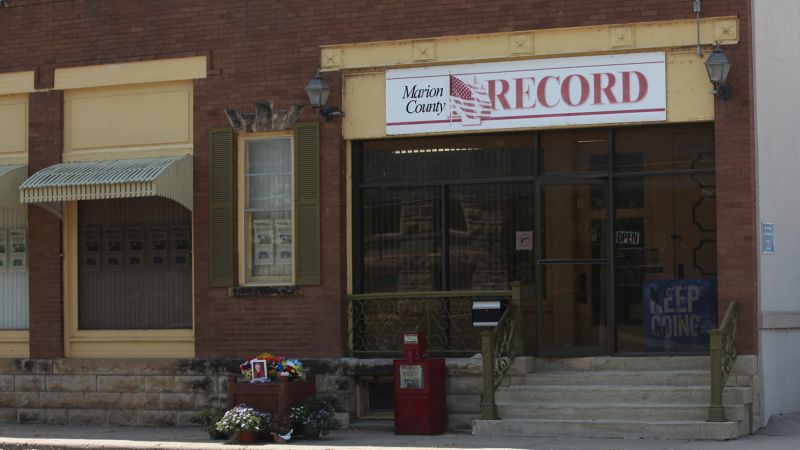The judge who signed off on a search warrant authorizing the raid of a newspaper office in Marion, Kansas, is facing a complaint about her decision and has been asked by a judicial body to respond, records shared with CNN by the complainant show.
President and law is to issue a subpoena. Basically ask instead of demand. It’s to insure newspapers first amendment rights.
Based on your dodgy command of English I’m going to give your statements on criminal procedure very little weight.
Okay
Sorry friend, but they’re right, you’re wrong and to dismiss them over a spelling error is arrogant and ignorant. The warrant was for someone at the paper allegedly illegally accessing someone’s driving record (1). Kansas has a law that protects driver’s records, but it has a carve out for journalists with a legitimate need to access that info (2). Even if that legitimate need doesn’t exist, this is a civil cause of action and not a criminal proceeding (3), so a subpoena from the aggrieved party would be appropriate and a warrant for the police to raid both the office and a journalist’s home is a massive overstep, obviously intended to punish someone before they’ve even been accused of a crime. The warrant has since been withdrawn by the county attorney, who directed that all seized materials be returned and all copies of seized data be destroyed (4).
It’s a federal law and there is no carve out for journalists. I linked the statute elsewhere.
I don’t know what you’re talking about. The warrant was part of a criminal investigation by police, not any civil lawsuit.
And you didn’t even read your own links.
CONFIDENTIALITY AGREEMENT Under the Drivers’ Privacy Protection Act of 1994, as amended (DPPA) (18 U.S.C. § 2721), personal information obtained by the Kansas Department of Revenue cannot be released unless the request for information falls within one of the exceptions within the Act. It is unlawful for personal information to be used for any purpose not permitted under the DPPA
The DPPA has no exception for journalists.
DPPA has no exception for journalists
is a very interesting way to interpret
In the analogous area of birth and death records, “reporters when investigating stories have a ‘legitimate research purpose’ … and are therefore to be allowed access to the vital records.” Campbell & Assoc. v. Sharma, No. 884-0076, at 22 St. Louis Cir. Ct. (Jan. 25, 1989).
Seems like I’m not the one who doesn’t read my links
Wtf are you talking about? This case doesn’t involve vital records (birth, death, marriage certificates).
Here’s the statute buddy: https://www.law.cornell.edu/uscode/text/18/2721
Sections (b)(1)-(14) list the only rights of access.
What does a Missouri circuit court holding about vital records in 1989 have to do with anything? The case at issue was in Kansas, doesn’t involve vital records (which are already open under FOIA).
You’re obviously a poser.




